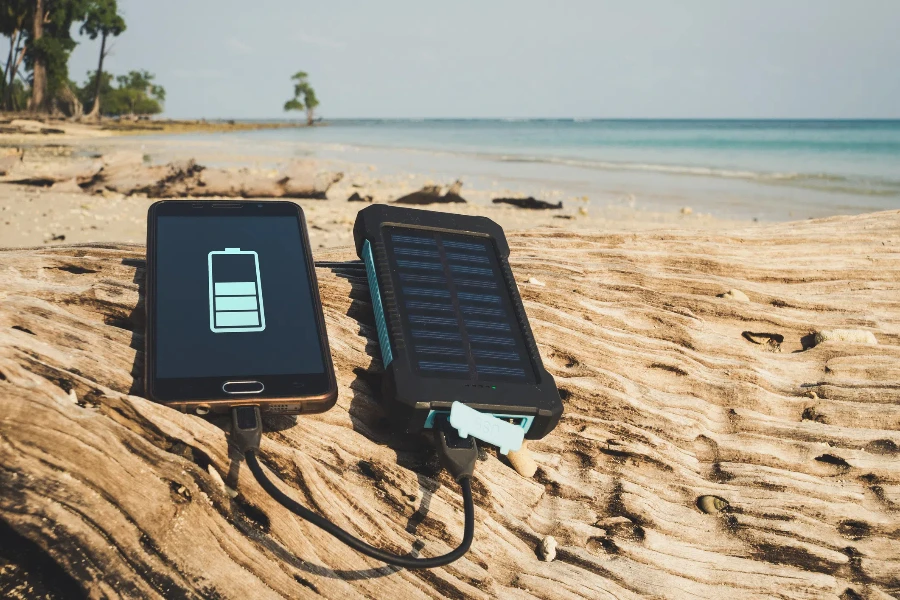In an era where sustainability is more than a buzzword, solar chargers have emerged as a beacon of hope for environmentally conscious individuals. This article delves into the intricacies of solar chargers, shedding light on why they are becoming an indispensable part of our lives. From outdoor enthusiasts to urban dwellers, the appeal of harnessing the sun’s power is universal. Join us as we explore the key aspects that make solar chargers a smart choice for anyone looking to reduce their carbon footprint while staying powered up.
Table of Contents:
– Understanding solar chargers
– The technology behind solar chargers
– Benefits of using a solar charger
– Choosing the right solar charger for your needs
– Environmental impact of solar chargers
Understanding solar chargers

Solar chargers are devices that convert sunlight into electricity, providing a green alternative to traditional charging methods. They come in various shapes and sizes, from compact, portable models to larger, more powerful units designed for specific applications. At their core, solar chargers aim to offer freedom from the constraints of conventional power sources, enabling users to tap into the abundant energy provided by the sun.
The principle behind solar charging is simple yet profoundly impactful. By utilizing photovoltaic cells, these chargers transform solar radiation into usable electrical power, which can then be used to recharge a wide array of electronic devices. This process not only offers an eco-friendly way to stay connected but also ensures that power is available even in remote locations, far from any electrical grid.
Despite their growing popularity, solar chargers are often misunderstood. Some assume they are only useful in bright, sunny conditions. However, modern solar chargers are increasingly efficient, capable of drawing power even on cloudy days, albeit at a reduced rate. This versatility makes them an excellent option for a variety of users, from hikers to commuters, who seek a reliable alternative to traditional charging methods.
The technology behind solar chargers

At the heart of every solar charger lies photovoltaic (PV) technology. This technology, which is also used in solar panels, involves the use of semiconductor materials that generate electricity when exposed to sunlight. The efficiency of a solar charger largely depends on the type and quality of the PV cells it uses.
Recent advancements in PV technology have led to the development of more efficient and durable solar chargers. These improvements have significantly increased their appeal, making them a viable option for everyday use. For instance, innovations in thin-film solar cells have resulted in lighter and more flexible chargers, ideal for backpacking or emergency kits.
Another critical aspect of solar charger technology is the power management system. This system regulates the flow of electricity from the PV cells to the device being charged, ensuring safety and optimizing charging efficiency. Sophisticated solar chargers come equipped with features like maximum power point tracking (MPPT), which maximizes the power output under various lighting conditions.
Benefits of using a solar charger

The benefits of using a solar charger extend beyond environmental sustainability. One of the most compelling advantages is the convenience and independence it offers. With a solar charger, users are no longer tethered to power outlets, allowing for greater mobility and freedom, especially for outdoor activities.
Moreover, solar chargers can provide significant cost savings over time. By reducing reliance on grid electricity, users can lower their energy bills and avoid the costs associated with disposable batteries. This makes solar chargers not only an eco-friendly choice but also an economically smart one.
Another benefit worth mentioning is the emergency preparedness solar chargers offer. In the event of a power outage or natural disaster, having a solar charger can be a lifeline, ensuring that communication devices remain operational. This aspect alone makes solar chargers a valuable addition to any emergency kit.
Choosing the right solar charger for your needs

Selecting the appropriate solar charger requires consideration of several factors, including the types of devices you intend to charge, the conditions under which you’ll be using the charger, and your budget. For instance, charging a smartphone requires less power than charging a laptop, so a smaller, less powerful charger might suffice for the former.
Portability is another crucial factor. If you’re an avid traveler or outdoor enthusiast, a lightweight, compact charger would be ideal. Conversely, if you’re looking to power multiple devices or need a charger for home backup, a larger, more robust model might be necessary.
Lastly, it’s essential to consider the charger’s compatibility with your devices. Ensure that the charger you choose has the right connectors and can provide the correct amount of power for your gadgets. Reading reviews and product specifications carefully can help you make an informed decision.
Environmental impact of solar chargers

The environmental benefits of solar chargers are clear. By harnessing renewable energy from the sun, these devices reduce reliance on fossil fuels, thereby lowering carbon emissions. This shift to cleaner energy sources is crucial in combating climate change and promoting a more sustainable future.
Moreover, solar chargers can help decrease electronic waste. By using solar power to recharge batteries, the need for disposable batteries is significantly reduced. Considering the harmful chemicals and materials contained in disposable batteries, this is a notable environmental advantage.
In conclusion, solar chargers offer a promising path toward more sustainable energy usage. They embody the principles of renewable energy, providing a practical solution that benefits both the user and the environment. As technology advances, we can expect solar chargers to become even more efficient and widespread, playing a crucial role in our collective shift towards a greener, more sustainable world.
In embracing solar chargers, we not only gain a convenient power source but also contribute to a larger movement towards environmental stewardship. It’s a step towards a future where technology and nature coexist in harmony, powering our lives while preserving our planet.



